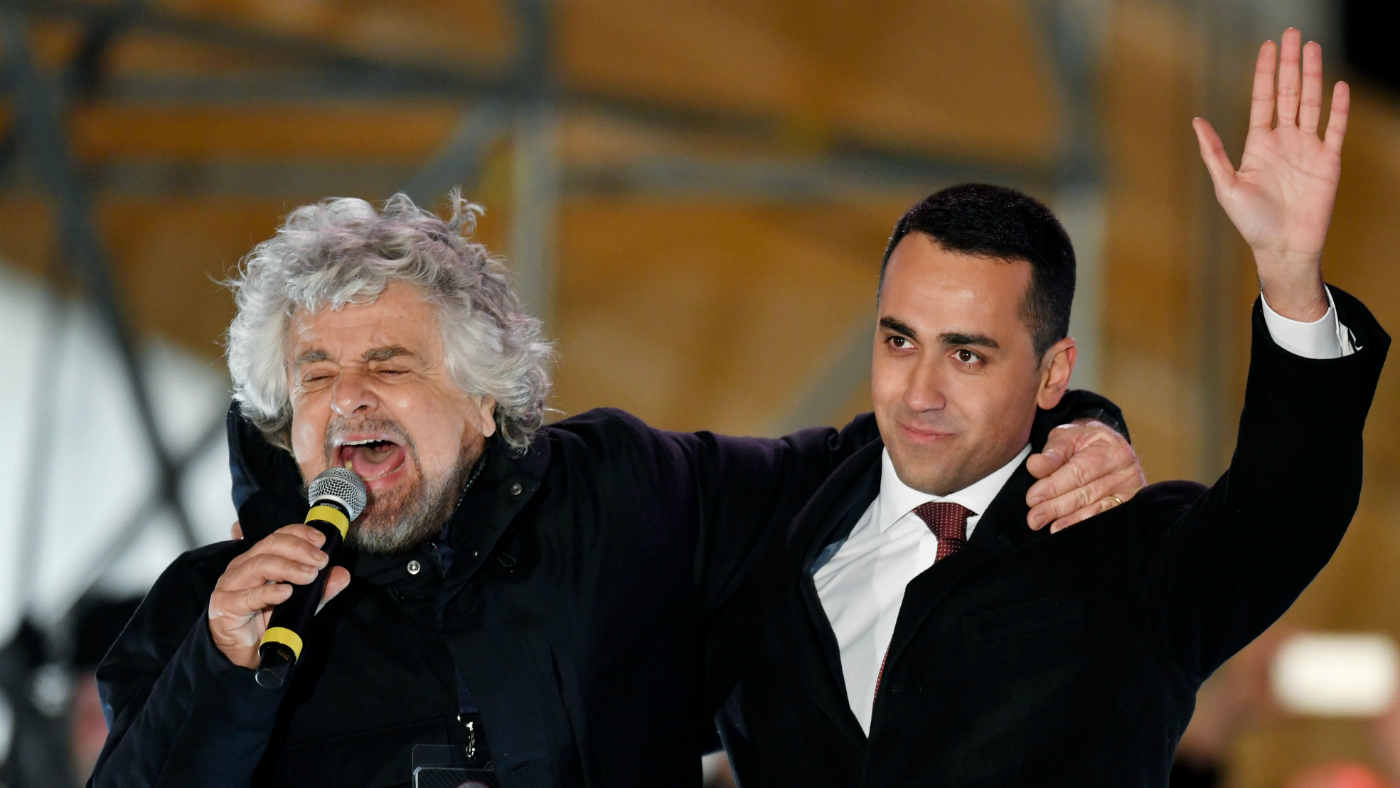Italian elections: what is the Five Star Movement?
Anti-vaccination, anti-Europe and anti-immigration, Italy's largest party courts controversy

A free daily email with the biggest news stories of the day – and the best features from TheWeek.com
You are now subscribed
Your newsletter sign-up was successful
Italy’s Five Star Movement has blown a hole in the country’s political landscape by claiming the largest vote share in this weekend’s general election.
The controversial party, led by Luigi Di Maio and founded by former comedian Beppe Grillo, emerged as the “big winner” of a vote that has devastated hopes of the two traditional political blocs forming a government - and that will be viewed with “trepidation” in Brussels.
The victory of Five Star, also known as M5S, has been attributed to a “populist wave” - Grillo has been described as “Italy’s Donald Trump” - but is the rise of avowedly “Eurosceptic, anti-free trade and pro-Kremlin” party fuelled by populism alone?
The Week
Escape your echo chamber. Get the facts behind the news, plus analysis from multiple perspectives.

Sign up for The Week's Free Newsletters
From our morning news briefing to a weekly Good News Newsletter, get the best of The Week delivered directly to your inbox.
From our morning news briefing to a weekly Good News Newsletter, get the best of The Week delivered directly to your inbox.
Formed in 2009 in the aftermath of the financial crisis, Five Star has “fed off public fury over corruption in the Italian establishment” and sluggish economic recovery, The Independent reports.
The party originally backed Italy’s withdrawal from the eurozone and Nato, although its rapid ascent into the political mainstream has seen party leaders either downplay these radical policies or drop them entirely, the newspaper adds.
Other policies include “drastic” cuts to corporate taxes, slashing red tape, and guaranteeing a minimum monthly income of up to €780 (£695) for the poor; all of which proved popular with voters in Italy’s underdeveloped southern regions, where the party swept the board on polling day.
Perhaps the most radical of Five Star’s plans would be to reduce much of the legislative power of the Italian parliament and instead implement a direct democracy in which members of the public would be able to vote on laws and governmental decisions, according to the Financial Times. The party already has a similar system in place internally, with much of its manifesto decided by polling registered party members online.
A free daily email with the biggest news stories of the day – and the best features from TheWeek.com
The party also insists that politics should not be a career, an ethic that it enforces by imposing a two-term limit on its own representatives, after which “they are expected to return to work in civil society”, The Local reports.
“While the main parties are often accused of cronyism, the Five Star Movement excludes those who already hold public office from their list,” the news site adds.
Despite such apparently democratic ideals, the party has drawn considerable criticism from both rival politicians and the Italian public. Among other things, Five Star has been accused repeatedly of aligning itself with classically fascist ideals.
In 2014 its role in a brawl inside Italy’s parliament building prompted leading Italian journalist Corrado Augias to say that the violence used by M5S reminded him of fascism. Followers of the party later organised burnings of Augias’s works, fuelling the problematic fascist parallels.
In 2017, the party blocked a parliamentary bill that would have banned fascist salutes and penalised the sale of Mussolini memorabilia, The Times reports.
Perhaps the most controversial of M5S policies, however, is a plan to scrap a law passed in July that made vaccinations compulsory for children under the age of 16. Grillo “mocked compulsory vaccines as part of his stand-up routine in the late 1990s”, Politico reports, and the party “repeatedly ties vaccines to autism, citing research that has since been debunked”.
Italy recorded almost 5,000 cases of measles in 2017 - 35% of all cases in Europe - according to the European Centre for Disease Prevention and Control. This is a fivefold increase on the previous year, and has been linked to a rise in anti-vaccination sentiment in the country.